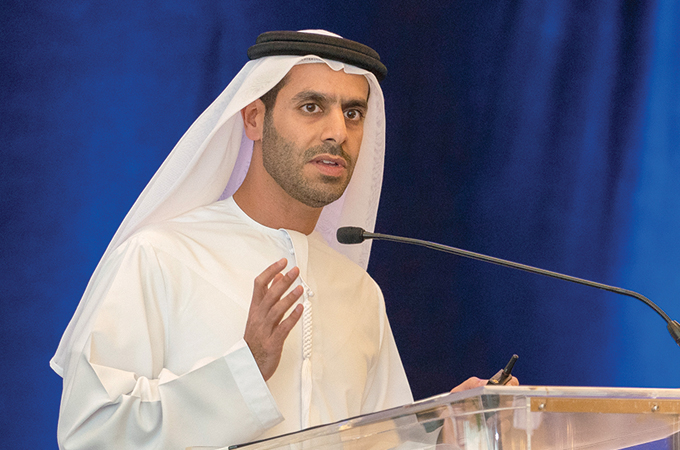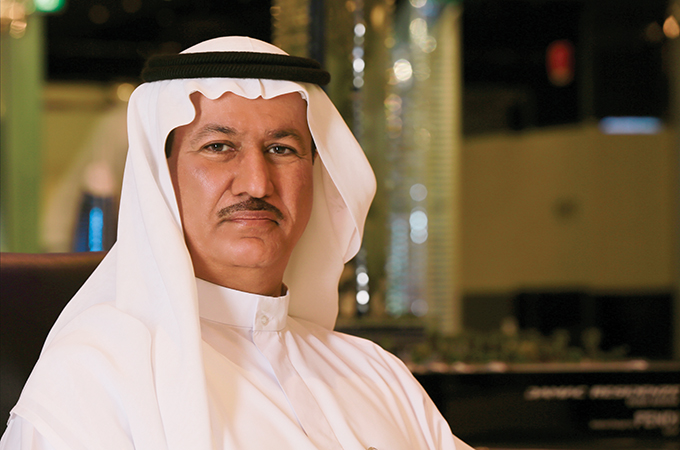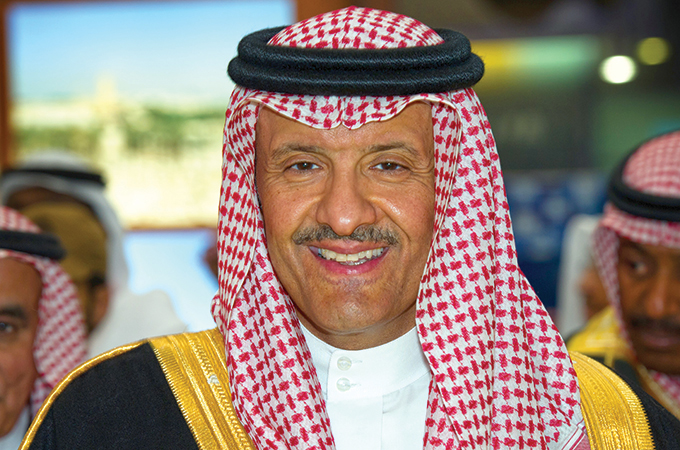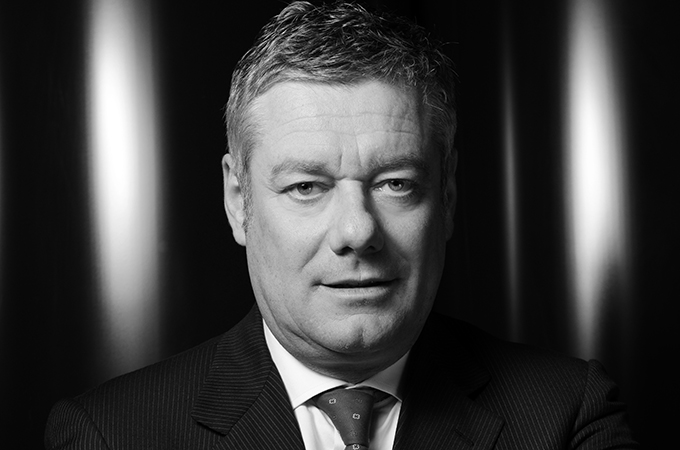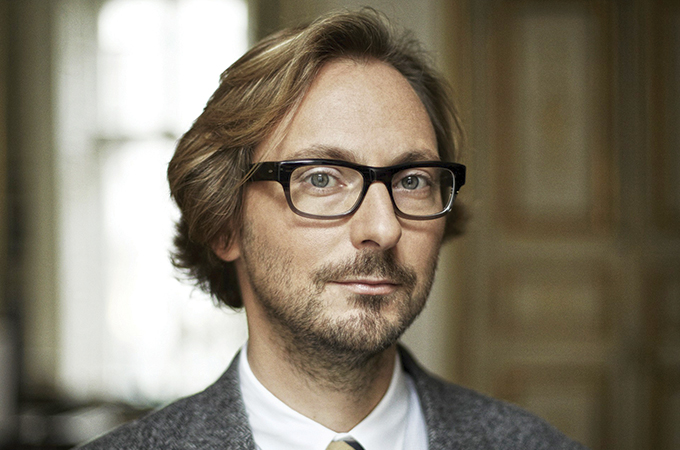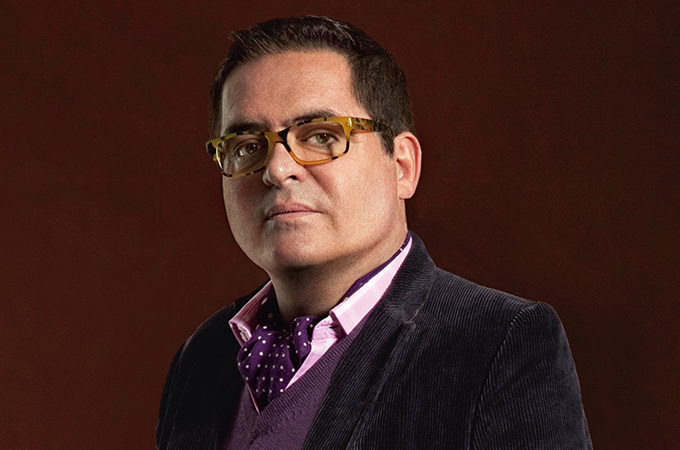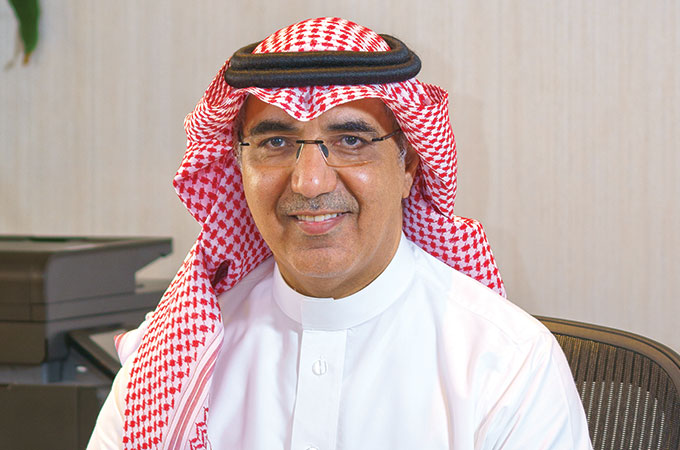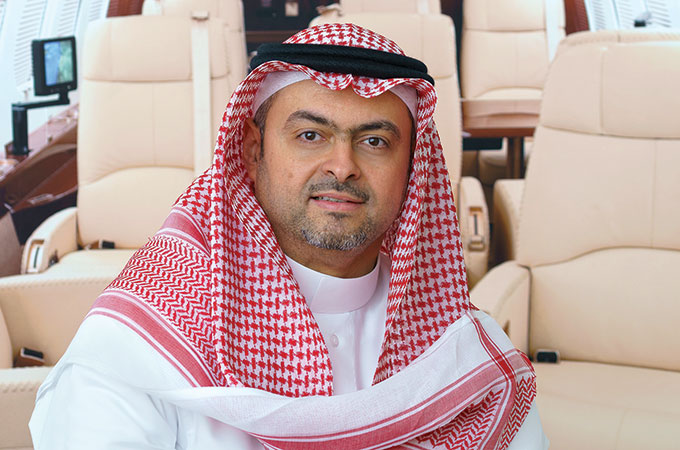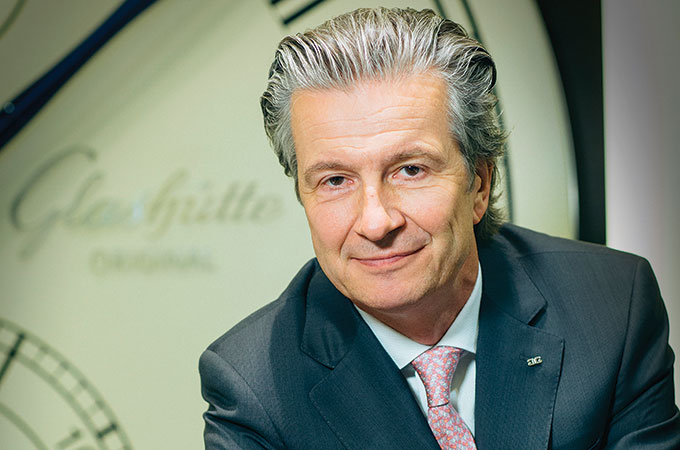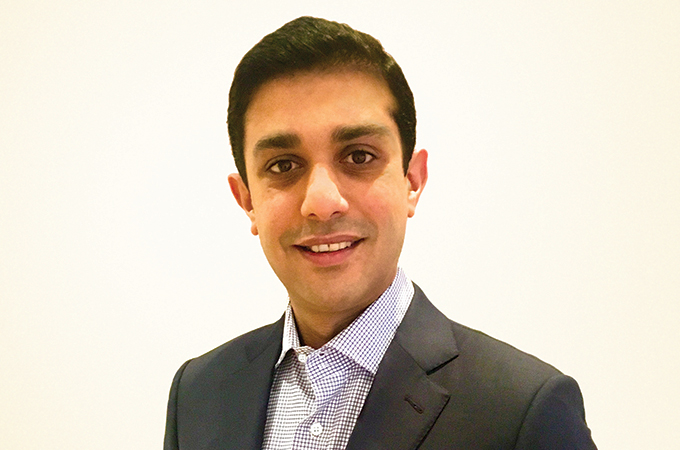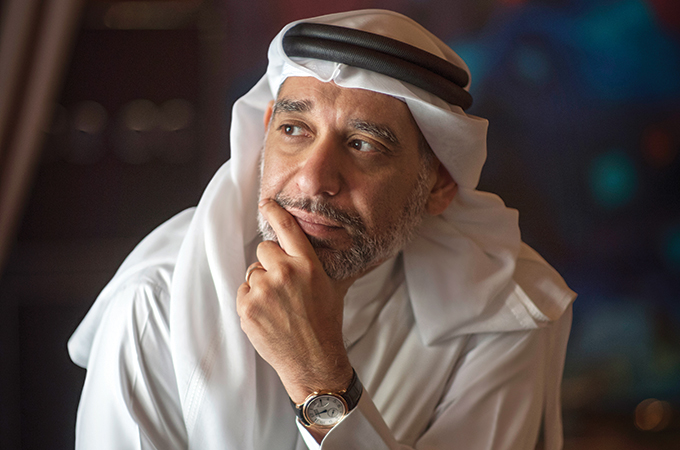Autumn 2020
Every once in a while, we meet someone whose mere name inspires us to achieve, give our best and work our hardest.
One such personality is His Excellency Marwan bin Jassim Al Sarkal, Executive Chairman of Sharjah Investment and Development Authority (Shurooq), one of the key figures in the success story of the Emirate of Sharjah, UAE.
Shurooq is an independent government entity, inspired by innovation, and has played a major role in enhancing Sharjah’s appeal as an investment, tourism, and business destination since its establishment in 2009. At the helm, guiding the change is Al Sarkal, the visionary.
Al Sarkal graduated from the UAE’s Higher Colleges of Technology at 19 with a double major in accounting and business administration and went on to work for Sharjah Electricity and Water Authority (SEWA), Dubai Shopping Festival, Dubai Summer Surprises, Global Village, and was the executive producer and presenter of his own automotive show on Dubai TV.
At the age of 26, Al Sarkal joined Shurooq as CEO at the time of its establishment, becoming one of the youngest CEOs in the country, and that too of a government organisation. In May 2018, His Highness Sheikh Dr Sultan bin Muhammad Al Qasimi, Member of the Supreme Council and the Ruler of Sharjah, issued an Emiri Decree promoting Al Sarkal as the Executive Chairman of Shurooq.
Al Sarkal’s name is inextricably linked with the conceptualisation, development and ultimately the success of Sharjah’s top eco-tourism, mixed-use and hospitality projects, be it Al Qasba, Al Noor Island, Mleiha Archaeological and Eco-Tourism Project, Sharjah Collection, Heart of Sharjah, or Khorfakkan Beach. He has been and continues to be at the helm of a series of projects to be rolled out in the coming months and years.
It is naturally befitting that he meets the Arabian Knight team at The Chedi Al Bait, Sharjah, one among the emirate’s recent, and perhaps the most unique hotel.
“This is the first time that we have a luxury boutique hotel in Sharjah in the historical area on the creekside. A project of this kind is unheard of in the GCC – the fact that guests get to inhabit houses that were originally built in the 1860s is remarkable in itself. Plus, there’s a community feel to this hospitality project - it is not one tall skyscraper, but 10 traditional buildings spread over a neighbourhood,” Al Sarkal tells us.
The Chedi Al Bait, Sharjah is part of a larger revitalisation project called “Heart of Sharjah”, Shurooq’s ambitious undertaking aimed at preserving and restoring Sharjah’s heritage area, complete with its authentic old houses, alleyways, sikkas, shops, souqs, cafes and retail outlets, while also giving it a contemporary relevance.
“Shurooq believes in accepting challenges and transforming areas, whether it is here in the Heart of Sharjah or on the East Coast, in Kalba, where you have mountains, woodlands, mangroves, wetlands and the ocean coming together to make a unique and biodiverse neighbourhood,” Al Sarkal elaborates. “The ‘Sharjah Collection’ brand’s Mysk Kingfisher Retreat is the jewel of this project. This eco-retreat opens out to the Al Qurm Nature Reserve, famous for its rich biodiverse ecosystem of mangrove forests and rare species of birds, turtles, fish and deer.”
Other Sharjah Collection hotels include Mysk Al Badayer Retreat and Mysk Al Faya Retreat. Apart from Sharjah Collection, Shurooq offers other unique mixed-use developments combining retail, cultural attractions, and F&B into master-planned destinations with a focus on conservation. Its portfolio includes Al Majaz Waterfront, Al Montazah Parks, Al Noor Island, Al Qasba, The Flag Squares, Mleiha Archaeological Centre, The Flag Island and Khorfakkan Beach.
“Right from the very beginning and to this day, the guidance and motivation of His Highness the Ruler of Sharjah and Sheikha Bodour bint Sultan Al Qasimi have been the biggest strength of Shurooq,” continues Al Sarkal.
“When I met Sheikha Bodour in 2006, she told me about Al Qasba and how she would like to revive it. At the time, I had my doubts if this was feasible as there was nothing there except the Eye of the Emirates wheel and some retail shops.
“When Sheikha Budoor said that we need to get the right people, I suggested some names. But no one was accepted. Eventually she asked me to join the team and I agreed to be part of the steering committee but I did not join as an employee.”
In the early days of the Al Qasba project, Al Sarkal was working 12 hours a day. “I’d rather not do something than give it less than my 100 per cent. It was a period of pure hard work. After four months, His Highness Sheikh Dr Sultan asked me to work with them in Sharjah, so I took over as CEO of Al Qasba Development Authority.”
Al Sarkal’s role in establishing Al Qasba as a prominent tourist destination paved the way for the establishment and subsequent success of Shurooq.
“Once I was appointed as the Chief Executive, I started hiring people, judging them by their passion and their attitudes. I didn’t give much weight to CVs, or whether you have a bachelor’s degree or PhD. What mattered was if you had the drive. In those days, I used to hire from the very first interview itself – there were no second interviews or HR interviews. I especially remember hiring two ladies – I won’t mention their names today – they were working in a government educational institution and were seeking change. I asked them to start the next day and told them, ‘if you show me that you can do it, you’ll be here to stay’ – and indeed they are still with Shurooq to this day,” reminisces Al Sarkal.
“I still remember how my team would sit at one table around me – we were 28 of us at that point. The main problem at Al Qasba was that the restaurants were not profitable as visitors were few. There was nothing much to see or do, so we created an events programme for Al Qasba – the Eye of the Emirates celebration, the Italian festival, the Iranian festival, the Chinese festival. This generated good publicity, which attracted people, and got the proverbial wheel turning and the project soon emerged as a success story,” he says.
“Some people will say you need exceptional talent to succeed. I say it is down to having the right people around you, who will help you achieve your collective goal. Success is not a one-man show. Organisations are made by people and effective teamwork is what drives success.”
Shurooq is currently developing an array of projects in strategic partnership with leading international companies that offer a range of investment opportunities. Among the list of signature projects that will be completed within the next two years include the House of Wisdom, Sharjah Sustainable City and The Avenues Mall Sharjah.
Launched on April 23, 2019, in celebration of the Sharjah World Book Capital 2019 – a prestigious Unesco honour recognising Sharjah’s ongoing cultural journey and achievements, the House of Wisdom is a 12,000-sq-m iconic library and cultural centre.
Developed by Shurooq and designed by British architectural design and engineering firm, Foster & Partners, the House of Wisdom comprises indoor and outdoor reading spaces and will feature a 105,000-book collection when fully operational. This unique cultural destination also features ‘The Scroll’, a striking monument designed by renowned British sculptor Gerry Judah.
Shurooq’s commitment to meet Sharjah’s vision to promote ‘green’ investments in the emirate has led to the launch of Sharjah Sustainable City, in partnership with Diamond Developers. Sharjah Sustainable City is the first fully integrated, net zero energy community in the emirate and adheres to the highest standards of environmental, social, and economical sustainability.
Located in downtown Sharjah overlooking the Arabian Sea, Maryam Island is one of Sharjah’s largest real estate projects and is developed by the Eagle Hills Sharjah Development, a joint venture between Shurooq and Eagle Hills. Nestled in the centre of Sharjah, Maryam Island offers an array of luxury residential apartments, four- and five-star hotels, waterfront food and beverage outlets, cafés, retail shops, leisure facilities, a dock, and green spaces.
Eagle Hills Sharjah Development is also developing Kalba Waterfront, the largest retail and first inclusive waterfront destination in Kalba. It is part of the Kalba Eco-Tourism Project. The AED160-million ($43.56 million) Kalba Waterfront boasts a magnificent view of a serene lagoon lined by mangroves and has a total built-up area of 17,000 sq m. The shopping mall features 86 retail outlets, a supermarket, a family entertainment centre, and a large food court.
Located in downtown Sharjah overlooking the Arabian Sea and downtown Sharjah, Palace Al Khan is the third project developed under the Eagle Hills Sharjah Development banner and offers a spectacular blend of nature and state-of-the-art facilities. Complete with a spa, a fitness club, an outdoor swimming pool, conference facilities and parking, the AED120-million ($32.67 million) Palace Al Khan comprises 87 keys in total, including executive suites.
Shurooq is enhancing Sharjah’s retail climate with The Avenues Sharjah, a 65,000-sq-m venture developed in partnership with leading Kuwaiti real estate developer, Mabanee, in a vibrant area near the Mughaider suburb at the junction of Sheikh Mohamed bin Zayed and Al Dhaid Road in Sharjah.
Shurooq has also announced four new large-scale tourism and hospitality projects in Khorfakkan, Kalba, Al Dhaid and Mleiha that will provide nature-inspired experiences in the emirate’s central and eastern regions. This will include two five-star hotels at scenic locations in Sharjah’s eastern region – a 66-key property located along the Khorfakkan Beach, which will also include the city’s first waterpark, and another property adjacent to Kalba Waterfront.
Shurooq will also be developing a 60-key experiential family retreat within the 14-sq-km Seih Al Bardi Kabeer Safari Park project currently being developed in the interiors of Al Dhaid. This is a first-of-its-kind hospitality offering set within a sprawling natural and wildlife reserve, which is expected to be home to 50,000 African animal species.
The fourth project, Moon Retreat, will be a new feature at the Mleiha Archaeological and Eco-tourism destination, which is expected to welcome guests by the end of this year.
Al Sarkal has spearheaded all the major infrastructural projects and key partnerships at Shurooq, initiating the development of its portfolio of projects, initiatives and partnerships estimated at a total value of more than AED10 billion ($2.72 billion), and covering Sharjah’s western, central and eastern regions.
Needless to say, the path has not been without its fair share of challenges for the young leader.
“The biggest challenge people face anywhere is changing existing perceptions of people and so for us too, this was the biggest challenge – how to make people want to spend time here and enjoy Sharjah. Today, I can confidently say that we have achieved this goal through our diverse portfolio of projects,” says Al Sarkal with a sense of satisfaction.
“The other challenge is finding the right people at the right time. We might have a lot of employees who are willing to work, but are they competent, do they have the right knowhow, would they like to work harder?
“When you’re successful, everybody is with you, but when you fail, people could lose trust in you. To keep that momentum going is also one of the challenges that any company goes through,” he confides.
Al Serkal lets us in on his secret – he loves every bit about working for Shurooq. “I love the challenges. I love developing projects and I love presenting anything about Sharjah. At Shurooq, we love what we do because we feel it creates an impact on a social level, on the economic level, on an environmental level, and even on the emotional level. This is what drives the success of Shurooq. We make sure we do not overbuild; we are a sustainable company.
“At Shurooq, we give people opportunity – whether you are an entrepreneur or starting a job and you need an opportunity, especially when it is hard to come by. Part of Shurooq’s success is due to the opportunities we have given people, which sometimes has been a success, and at other times, a failure, but at least we know that we gave someone a chance.
“Besides, failure is a part of life – not everybody can succeed at everything,” he concedes.
Al Sarkal has some advice for young people joining the workforce or planning to become entrepreneurs. “Just because you’ve studied something at university for four years, you don’t have to necessarily make it your life. You don’t have to be an accountant for life or an IT specialist for life. If you don’t enjoy what you do, try to find your inner passion and chase your dreams.”
Al Sarkal’s father was an ambassador of the UAE and so the family travelled and lived with him in several key cities around the globe. “The idea of believing in ourselves, choosing what we want to study and extending that choice to our career path, came early to me. As we travelled constantly, we were not bound to a specific group of people. Instead, we always had new friends and this made us very open and independent. Travelling around the globe with our parents wasn’t very easy, as it required adjusting to a new country and its culture and environment – every three years came with an adjustment period as it meant new friends, new countries, new breakfasts,” Al Sarkal says, taking us down memory lane.
Al Sarkal is a strong believer in how one’s childhood shapes his/her adulthood. “I would request all headmasters and headmistresses to not wait for students to come to them but to go out and greet and welcome children with positivity. This positively impacts kids not just one day but for life. I still remember fondly my kindergarten teacher in Japan welcoming us every morning.”
Al Sarkal believes in being closely connected to nature. “I feel our busy lives are making us totally disconnected from nature. Our kids don’t interact with nature as much as we did when we were growing up. My first farming experience, for instance, was when I was around four years old. I still remember the day I planted my first tree – it felt good to be close to nature. And when you put the importance of nature in the mind of four-year-olds, they are bound to talk about conservation and sustainability when they grow up to be CEOs.”
Taking us back in time and to his school days, Al Sarkal says: “When we moved to the UAE, I studied first at Rosary School in Sharjah, then Rashid School for Boys in Dubai, one of the best schools to graduate from. When I left school, I was 16 and chose IT initially and though I was extremely good at it, I changed my stream to accounting later,” says Al Sarkal with a glint in his eyes.
“I met Abdul Rahman Al Shamsi, who convinced me to join SEWA. Despite my initial hesitation, I joined and stayed on for 3.5 years. When I decided to move on to my next challenge, I was the Head of Auditing at SEWA, and working four times quicker than my predecessor. This is because I had developed an IT system that made it four times faster to audit everything but maybe this was ahead of the times.
“I moved to Dubai Shopping Festival (DSF) to take up a new challenge as Finance Manager. Within two years, I was Director of Finance and Administration and by the third year, I was Board Member of DSF in the steering committee that oversaw the transformation of Dubai Summer Surprises and Global Village to what it is today.
“Then I accepted a new challenge at Dubai TV, while continuing with my job. I enjoyed creating a programme, co-hosting it, becoming executive producer and a presenter, travelling around the globe, visiting factories, and interviewing CEOs.”
“We don’t live to work, we work to live. And this is what defines successful people,” says the young leader. “You don’t have to work in a place that doesn’t make you happy. Seek your passion. Do what you like, while you still have the passion, the will and the good health and strength to enjoy it. Travel, enjoy your life, your family, have fun – do it now. Challenge yourself. Sleep, but no more than six to eight hours. Don’t eat unhealthy food. Live your life as an entrepreneur – don’t live your life as chairman or a CEO.”
“My passions are travelling, motoring, art, history and watches,” he says.
So, what’s the biggest driver for him even after 21 years in the government sector? Without batting an eyelid, he declares: “It’s my family – my mother and father, who are still with me, and my wife and kids. I may not see them as much as I should, but as far as possible, I try to maintain an appropriate work-life balance. I believe that to be successful, one needs to focus on what you’re doing and you will succeed.”
The father-of-four further adds: “The greatest day in my life was when I became a dad. I have four kids – every child makes me feel special. When you see your kids walking in your footsteps and you do the best to ensure they are able to maintain their independence, they will be as successful as you are. Challenging them and supporting them makes me very happy,” he concludes.
– By Rashi Sen



